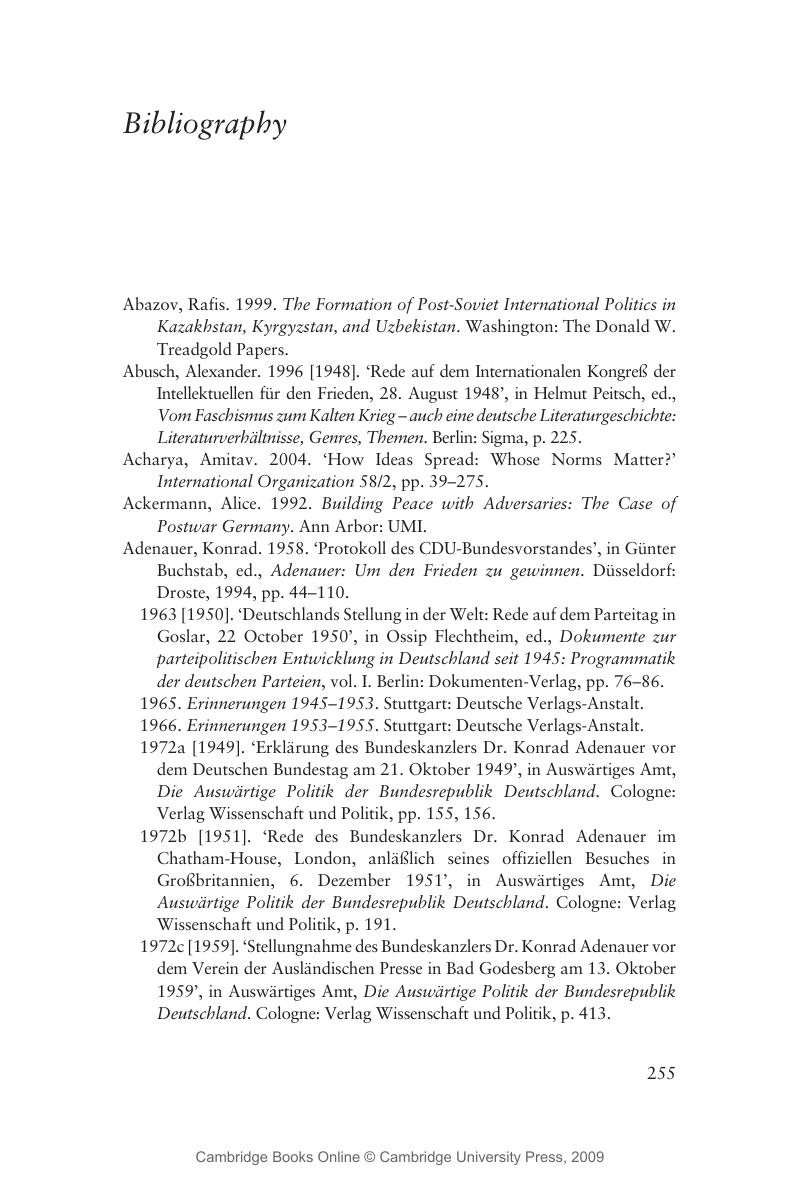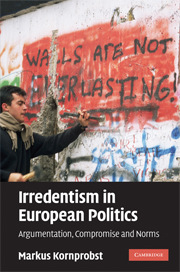Book contents
- Frontmatter
- Contents
- List of figures
- List of maps and tables
- Acknowledgements
- List of abbreviations
- Introduction
- 1 Irredentism in Europe
- 2 Argumentation and compromise
- 3 Broadening a vision for Europe
- 4 Towards a new beginning
- 5 From exclusion to inclusion
- 6 Constitutional change
- Conclusion
- Appendix I Coding procedures
- Appendix II Irredentist cases in Europe and other world regions
- Appendix III Analysed parliamentary debates and newspaper editions
- Bibliography
- Index
- References
Bibliography
Published online by Cambridge University Press: 21 August 2009
- Frontmatter
- Contents
- List of figures
- List of maps and tables
- Acknowledgements
- List of abbreviations
- Introduction
- 1 Irredentism in Europe
- 2 Argumentation and compromise
- 3 Broadening a vision for Europe
- 4 Towards a new beginning
- 5 From exclusion to inclusion
- 6 Constitutional change
- Conclusion
- Appendix I Coding procedures
- Appendix II Irredentist cases in Europe and other world regions
- Appendix III Analysed parliamentary debates and newspaper editions
- Bibliography
- Index
- References
Summary

- Type
- Chapter
- Information
- Irredentism in European PoliticsArgumentation, Compromise and Norms, pp. 255 - 294Publisher: Cambridge University PressPrint publication year: 2008



